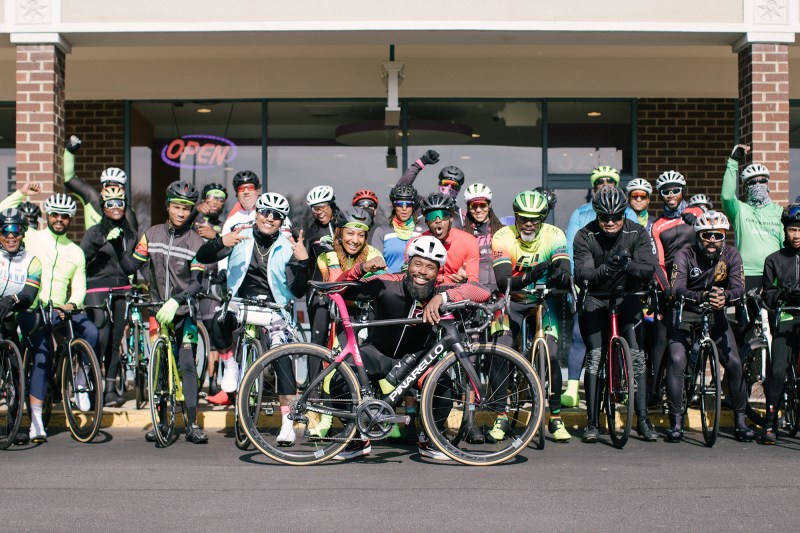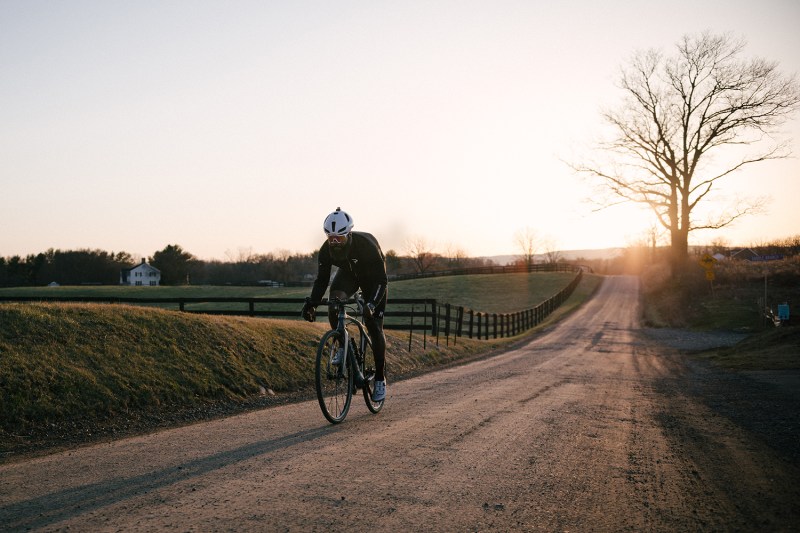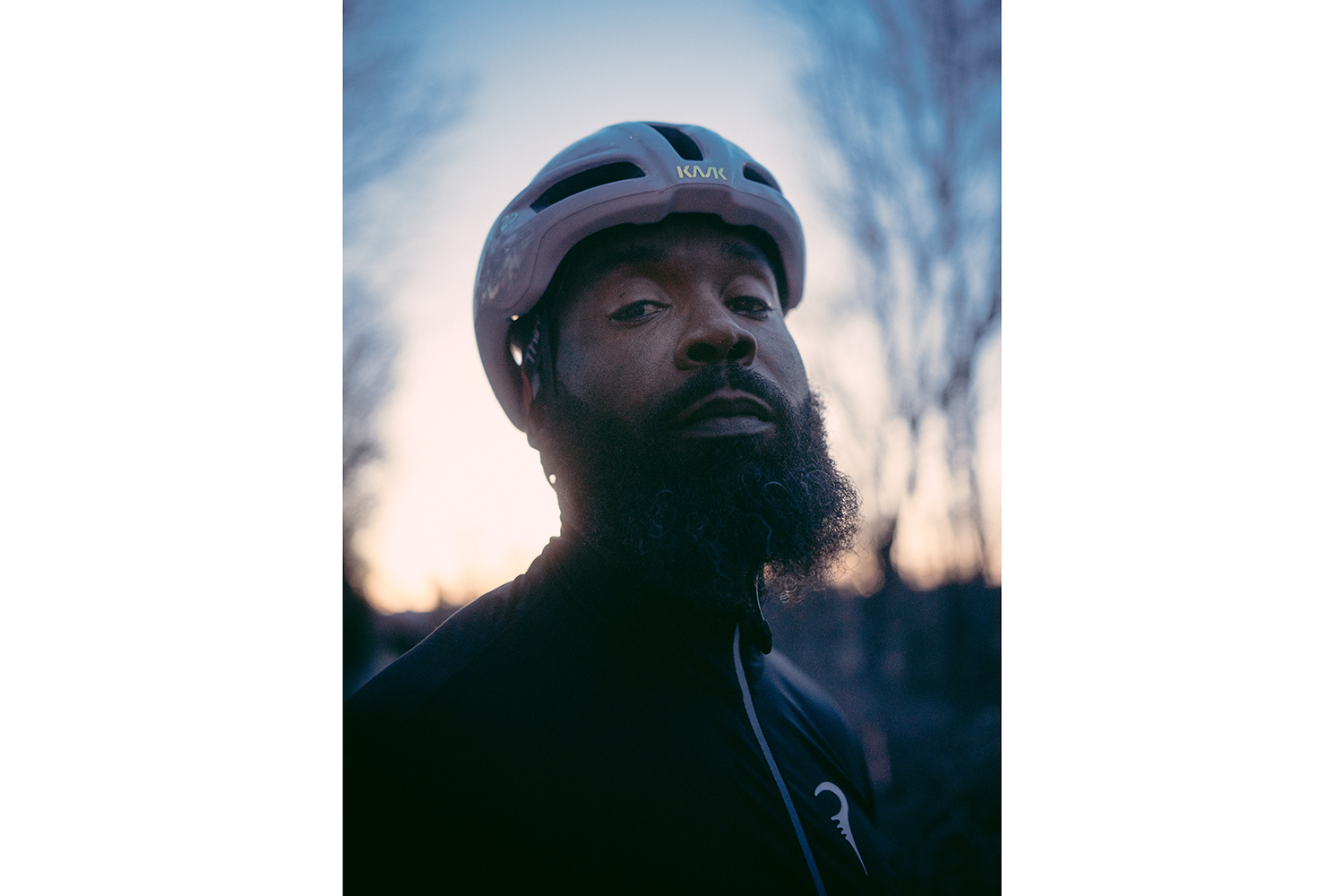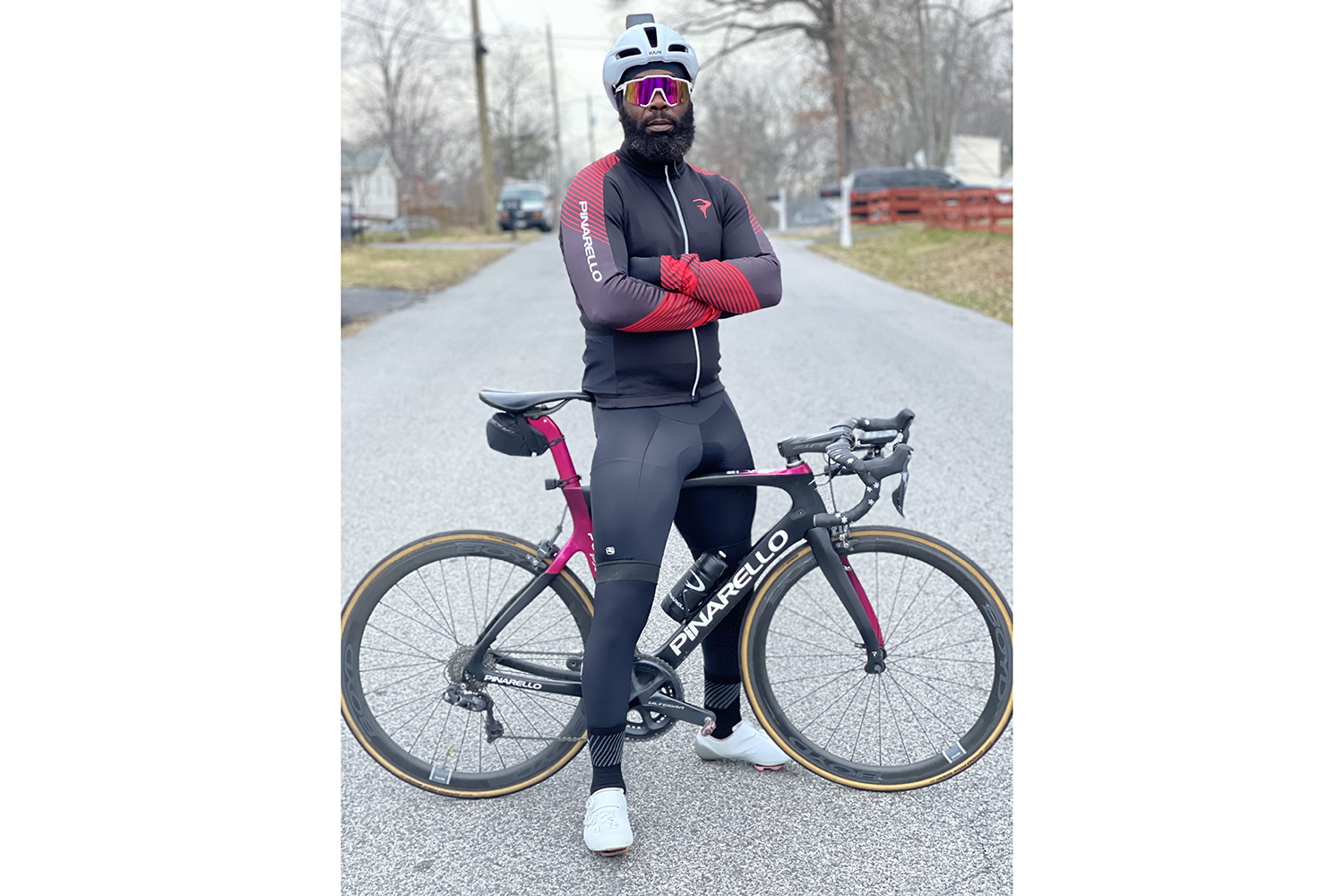
In Washington, D.C., cycling was never a sport. At least not for Anthony Carter and the Black community. “Back then, bikes were just to get around the neighborhood, jump curbs, pop wheelies,” the 49-year-old tells The Manual. For Carter and his classmates, the future revolved around football, track, or basketball, all of which — according to Carter — were a one-way ticket out of poverty, and his mom’s 10-speed was just a means of arriving at the courts faster. A bike, he says, was a bike.
It’s far from that now. For Carter, who, with seven other athletes, was announced in February to be members of Italian cycling company Pinarello‘s Scuderia (literally “stable”), it’s been one of the most transformational objects in his life. An accomplished criterion and gravel racer, a budding coach, and an evangelist of the good news of distance cycling in his community, there’s little in his life that two wheels have not touched.
Related Guides
Carter started as a standout basketball player in high school, but after failing to take it further, Carter largely slid into a middle-class life. He trained as a truck driver and started a business. Still, regardless of how busy work became, Saturdays were reserved for meeting old high school friends to ball. “A bunch of old guys, having fun, until the young guys come out there and beat us up,” he says, laughing. But competition was nothing to joke about. When young lions would challenge them on the court, Carter knew who he was checking: “Whoever’s deemed to be the best guy,” he says, “that’s the guy I’m challenging.”
What Carter stumbled upon is a truth that many “conditioning” sports like running, cycling, and swimming have historically struggled with. For a select few Americans and myriad children, these disciplines are sports with real winners and losers, glory and disappointment. But to adults, they’re more closely associated with drudgery: New Year’s resolutions or a prescription to overindulgence in pizza during freshman year. Few consider competing in what they view as some kind of low-grade punishment.
That’s where Carter’s road to cycling differs from most others: He was already fit and used to competing, albeit in a different sport. Connecting the dots was nearly a straight line.
As part of a general fitness program, Carter would jog the few miles to his nearest gym — nothing too major, but two or three miles at an easy pace. The distance wasn’t the problem, it was how his body felt after. “After I’d run, my legs would just be trashed,” he says. One day, over at his mother’s home, he found a bike in her garage and figured it would be an easier way to commute. He was just going to ride it home, but instead of a direct route, he meandered onto a greenway. Dappled sunlight, warm air, birdsong, and wind through the trees. “I just found this peaceful place, like I’m a kid again,” he says. Finally leaving, he rode on to his usual barbershop to tell them all about it. Turns out, they all rode, too, an unofficial cycling club under his nose the whole time. “No idea,” he says. They invited him on their normal Saturday rides — a day he’d normally reserved for the basketball courts and old friends — and he would replace one competition for another.
When you fall in love with a sport, you see it everywhere with a heightened sense of awareness. Cycling quickly became that for Carter. Wherever he looked, he’d see cyclists pedaling around his small Maryland town. He saw plenty of casual riders like himself, wearing basketball shorts and visors on their helmets. But he also saw the core athletes, in their skintight kits and loud colors, hunched over the aero bars, eyes hidden behind bug-like mirrored lenses. “This guy, from helmet to bike, everything matches. Everything,” he says. “I’m like, that’s cool. It’s all about coordination.”
Carter quickly completed a 50-mile ride on his mother’s bike, in baggy shorts, without a water bottle, and with horrendous chafing. But when he began preaching to his old high school friends on the experience, they soon bought bikes or dug them out of their garages to join in. Now, instead of their weekly date on the court, they’d meet on the greenway, all figuring out this new sport together — and starting to compete with the same fervor as they had with a basketball.
It was on one of these days when the friends were racing that Carter was essentially scouted by a local bike club president, who extended an invite to join. Despite this, Carter wasn’t about to show up until he had a bike. No, not that hybrid bike with the knobby tires borrowed from his mom. No, a road bike. A real bike. A serious bike. “The first time you come out, you can get a nickname, and you don’t want to be the ‘Walmart guy,’” he says.
That first bike, bought on layaway, was brought home in 2015, and with that, Carter began joining the club’s group rides. Partly because of his strength in hilly terrain, he received the nickname “hill killer.” But the other part is because of his affinity for going head to head with literally anyone. “These are all racers coming to our group now,” the club president told him. Their reason: They either wanted to recruit him or to bang it out on the roads. By the end of 2015, Carter was competing in formal races.
But while the attraction to cycling has always been the competition, his purpose now, beyond winning, was to share it with others in his Maryland town. “That’s what I’m really about, getting bikes into the community and letting people see this passion cycling has given me, this foundation of youth that I’ve found,” he says. “It’s been a blessing for me.”

And it’s working. While cycling, with its European roots, has traditionally been dominated by white faces, Carter says he’s seeing more and more Black and minority cyclists showing up to group rides and behind the starting lines at local crits. “Don’t be scared of this,” he tells those interested. “It’s just a sport.”
Cycling is a form of transportation and a low-impact exercise that’s easy on the joints and pleasant in the warmer months. But for some, including Carter, it’s a lung-busting all-out war in which, like Lance Armstrong used to say, you’re finding out who’s willing to hurt more. “It’s definitely a super competitive sport,” Carter says, “but you don’t have to be competitive with everyone around you.”
With his sponsorship in place and a full racing season ahead, Carter is managing to fit even more in by pursuing a coaching credential by the end of 2021, which will be used to formally train those in his community who, until now, have received his informal advice. Still, he’s most excited about competition. “Every time, there’s a tier to keep on pushing and pushing and pushing,” he says. Maybe he can get to a Cat-1 ranking, or, with as many people who have come into the sport, a pro masters team in the future.
But in the meantime, it’s aiming for whoever is closest. Carter has come far since those early days on his mom’s garage special. “‘A bike is a bike,'” he remembers telling some club members. “They were like, yeah, but a road bike ain’t a road bike.”





